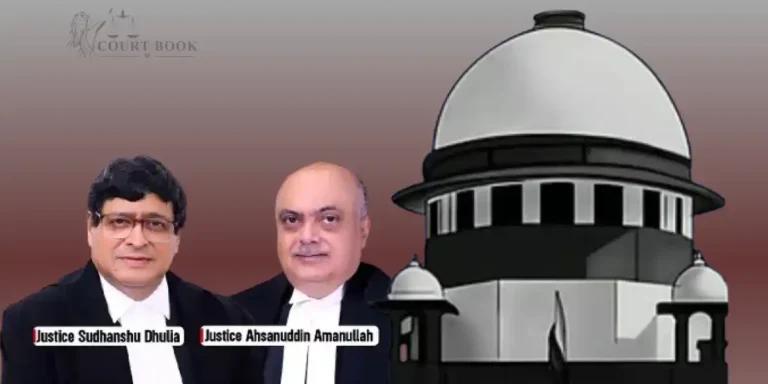The Supreme Court has once again made it clear that a 'Court of Kazi', 'Sharia Court', or any similar body, has no legal recognition in India. Any directions or decisions made by these bodies are not enforceable in law.
The bench of Justice Sudhanshu Dhulia and Justice Ahsanuddin Amanullah referred to the 2014 judgment in Vishwa Lochan Madan v Union of India, where it was held that Shariat Courts and fatwas have no legal sanction.
The Court was hearing an appeal filed by a woman who challenged the Allahabad High Court’s decision. The High Court had upheld the Family Court's order denying her maintenance, relying on a compromise deed from a Court of Kazi.
Highlighting the issue, the judgment authored by Justice Amanullah stated:
"'Court of Kazi', 'Court of (Darul Kaja) Kajiyat', 'Sharia Court', or similar bodies have no recognition under the law. Any declaration or decision by them is not binding and cannot be enforced through any legal means. Such decisions are valid only if both parties voluntarily accept them and if they do not conflict with any law. Even then, they are only binding between the concerned parties and not on any third party."
The facts of the case show that the appellant-wife married respondent no. 2-husband on 24 September 2002 according to Islamic customs. This was the second marriage for both.
In 2005, the husband filed a divorce suit before the 'Court of Kazi' in Bhopal, Madhya Pradesh. The suit was dismissed following a compromise dated 22 November 2005 between the parties.
Read Also:- Supreme Court Refuses to Cancel Senthil Balaji's Bail After His Resignation as Tamil Nadu Minister
Later, in 2008, the husband again filed for divorce in the 'Court of (Darul Kaja) Kajiyat'. The wife also approached the Family Court seeking maintenance under Section 125 of the Code of Criminal Procedure. In 2009, the Court of Darul Kaja pronounced talaqnama after allowing the divorce.
The Family Court rejected the wife’s maintenance claim, holding that she was responsible for the separation due to her conduct. It relied on the earlier compromise deed to reach this conclusion.
The Supreme Court strongly criticized the Family Court’s reasoning. The Court noted:
"The Family Court wrongly presumed that because it was a second marriage for both parties, dowry demand was not possible. Such reasoning is purely based on conjecture and not on any legal principle."
The Court further said that the Family Court misread the compromise deed:
"The compromise deed nowhere records any admission of mistake by the wife. Instead, it shows that both parties had agreed to live together peacefully without complaints. Therefore, the basis for rejecting maintenance was legally unsustainable."
The Supreme Court, finding fault in the Family Court's approach, ordered the husband to pay maintenance of Rs. 4,000 per month to the wife from the date she filed her petition.
The case is titled Shahjahan vs State of Uttar Pradesh.















